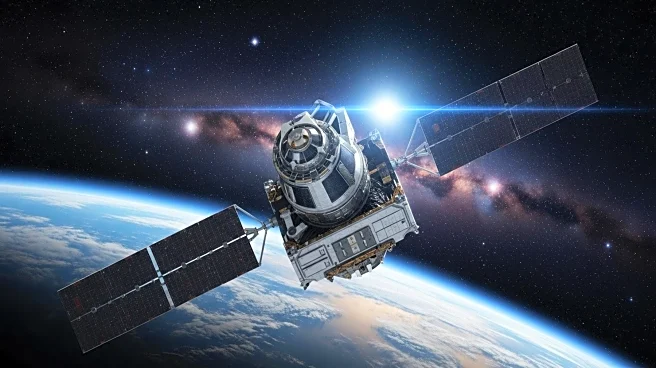What is the story about?
What's Happening?
Germany plans to invest €35 billion ($41 billion) in space-related defense projects by 2030, as announced by Defense Minister Boris Pistorius at the German industry's third Space Congress in Berlin. This investment aims to enhance Germany's technological independence and protect its assets in orbit, responding to the increasing militarization of outer space. Pistorius highlighted the vulnerability of satellite networks, citing a Russian cyberattack on the ViaSat satellite network that impacted wind turbines in Germany. The plan includes developing a comprehensive military space security architecture, featuring hardened systems, improved orbital surveillance, and a military satellite operations center within the Bundeswehr's Space Command. Russia and China were identified as potential space threats, with Russian satellites reportedly tracking German military satellites.
Why It's Important?
The investment marks a significant shift in Germany's defense policy, moving towards developing offensive capabilities in space to maintain credible deterrence. This change reflects the growing importance of space in national security, as satellite networks are crucial for communication, navigation, and surveillance. The move could influence other nations to bolster their space defense strategies, potentially leading to increased militarization of space. Germany's decision to enhance its space defense capabilities underscores the strategic importance of space in modern warfare and the need to protect critical infrastructure from potential adversaries.
What's Next?
Germany's investment in space defense is part of broader increases in its military budget, positioning the country as the fourth-largest defense spender globally. The development of counterspace capabilities, including demonstrator satellites, is expected to progress, with potential reactions from other spacefaring nations. The international community may need to address the implications of increased militarization of space, possibly revisiting treaties like the 1967 Outer Space Treaty to ensure peaceful use of outer space.
Beyond the Headlines
The shift towards offensive space capabilities raises ethical and legal questions about the militarization of space. As nations develop technologies to deter and defend against space threats, the risk of escalating tensions and conflicts in space increases. The international community may need to establish new norms and agreements to govern space activities, balancing national security interests with the peaceful use of outer space.















